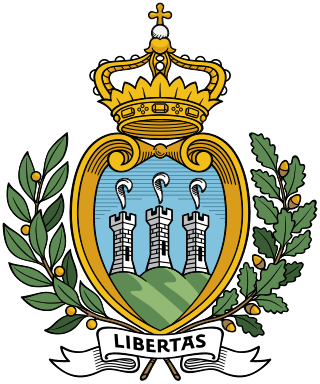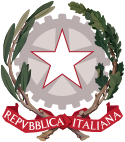
A constitutional referendum was held in France on 8 May 1870. Voters were asked whether they approved of the liberal reforms made to the constitution since 1860 and passed by the Sénatus-consulte on 20 April 1870. The changes were approved by 82.7% of voters with an 81.3% turnout. However, France's defeat in the Franco-Prussian War caused the Empire to be abolished later that year. Although this was the ninth constitutional referendum in French history, it was the first to have more than 8% oppose the motion; four of the previous seven had officially gained 99% approval.

A seven-part abrogative referendum was held in Italy on 15 June 1997. Voters were asked whether they approved of the repealing of laws on topics including privatisation, conscientious objectors, hunting, the judiciary and journalists, as well as whether the Ministry of Agrarian Politics should be abolished. Although all seven proposals were approved by voters, the voter turnout of 30% was well below the 50% threshold and the results were invalidated.

A referendum on the electoral law was held in San Marino on 22 September 1996. Voters were asked four questions on changes to the electoral law and electoral system, all of which were approved by voters.

A referendum on the electoral law was held in San Marino on 3 July 2005. Voters were asked four questions on changes to the electoral law and electoral system. Although all four were approved by a majority of those voting, voter turnout was just 21.7%, meaning that the quorum of 32% of registered voters (10,143) was not achieved for any question. This resulted in all four questions failing, including two that proposed raising the quorum to 40%.
A three-part referendum was held in Switzerland on 21 October 1877. A federal law on working in factories was approved by voters, whilst a federal law on compensation for not serving in the military and a federal law on the political rights of settled and travelling people and the loss of rights for Swiss citizens were both rejected.
A four-part referendum was held in Switzerland on 11 May 1884. All four were rejected by voters.
Two referendums were held in Switzerland in 1887. The first was held on 15 May, asking voters whether they approved of a federal law on spirits, and was approved by 65.9% of voters. The second was held on 10 July, asking voters whether they approved of an amendment made to article 64 of the federal constitution, and was approved by 77.9% of voters and 20.5 cantons.
A referendum on accident and health insurance was held in Switzerland on 2 October 1890. Voters were asked whether they approved of a federal resolution on amending the constitution with regards to accident and health insurance. It was approved by a majority of voters and cantons.
Five referendums were held in Switzerland in 1891. The first was held on 15 March on a federal law on federal officials who had become unemployable due to disability, and was rejected by 79.4% of voters. The second was held on 5 July on a constitutional amendment, and was approved by 60.3% of voters. Two referendums were held on 18 October, one on revising article 39 of the federal constitution and one on a federal law on Swiss tariffs; both were approved. The last was held on 6 December on the question of whether the federal government should purchase the Swiss Central Railway, but was rejected by 68.9% of voters.
A referendum on a war tax was held in Switzerland on 6 June 1915. Voters were asked whether they approved of amending the constitution to introduce a one-off war tax during the First World War, which Switzerland remained neutral. It was approved by a large majority of voters and all cantons, the first time a referendum had been passed in every canton.
A referendum on unfair competition was held in Switzerland on 29 October 1944. Voters were asked whether they approved of a new federal law on unfair competition. The proposal was approved by 52.9% of voters.
Two referendums were held in Switzerland during 1918. The first was held on 2 June on introducing a direct federal tax, and was rejected by a majority of voters and cantons. The second was held on 13 October 1918 on introducing proportional representation for National Council elections, and was approved by a majority of voters and cantons. As a result, proportional representation was introduced in the 1919 elections.
Seven referendums were held in Switzerland during 1958. The first was held on 26 January on a popular initiative "against the abuse of economic power", concerning unfair competition, and was rejected by voters. The second was held on 11 May on the federal budget, and was approved by voters. The third and fourth were held on 6 July on introducing a new section 27ter to the constitution concerning films, and a petition to improve the road network, both of which were approved. The fifth referendum was held on 26 October on instituting a 44-hour working week, and was rejected by voters. The final two were held on 7 December on a constitutional amendment on gambling and approving a treaty with Italy on a hydroelectric power scheme on the River Spöl, with both approved.
Five referendums were held in Switzerland in 1970. The first was held on 1 February on a federal resolution on the domestic sugar market, and was approved by voters. The second was held on 7 June on a popular initiative "against foreign infiltration", and was rejected by voters. The third and fourth were held on 27 September on an amendment to the Swiss Federal Constitution regarding promoting gymnastics and sports, which was approved, and a popular initiative on the "right to habitation and expansion of family protection", which was rejected. The fifth was held on 15 November on an amendment to the federal financial order, which was rejected due to not enough cantons voting in favour.
Nine referendums were held in Switzerland in 1975. The first was held on 2 March on an amendment to the Swiss Federal Constitution on the article on the economic cycle. Although it was approved by a majority of voters, it did not receive the support of a majority of cantons, so was rejected. The next five were held on 8 June on protecting currency (approved), financing the national road network (approved), amending the general tariff (rejected), increasing taxes the following year (approved) and restricting federal expenditure (approved). The final three were held on 7 December on a constitutional amendment on the right to residence and welfare benefits (approved), a constitutional amendment on water management (approved) and a federal law on the import and export of agricultural goods (approved).
Four referendums were held in Switzerland in 1981. The first was held on 5 April on a popular initiative "for a new policy on foreigners." Known as the "Mitenand Initiative", it was rejected by 84% of voters. The next two referendums were held on 14 June on popular initiatives for gender equality and the protection of consumer rights, both of which were approved. The final referendum was held on 29 November on prolonging the federal finance order, and was also approved.
Fifteen referendums were held in Switzerland during 1992. The first two were held on 16 February on popular initiatives "for a financially bearable health insurance" and "for the drastic and stepwise limitation of animal experiments." Both were rejected by voters. The next seven were held on 17 May on joining and contributing to the Bretton Woods system, a federal law on water protection (approved), a popular initiative "for the recovery of our waters" (rejected), a federal resolution on the popular initiative "against the malpractice of gene technology on humans" (approved), a federal resolution on creating a civilian service alternative to military service (approved) and a change to the Strafgesetzbuch and the Military and Penal Codes on sexual integrity (approved).
Thirteen referendums were held in Switzerland during 1994. The first five were held on 20 February on federal resolutions on roadbuilding, continuing existing truck tolls and varying tolls based on engine power or mileage, as well as a popular initiative "for the protection of the alpine region from through traffic" and an amendment to the aeronautical law. All five were approved by voters. The second set of referendums was held on 12 June on federal resolutions on an article on the Swiss Federal Constitution on the promotion of culture and a review of the procedure for naturalising young immigrants, as well as a federal law on Swiss troops in peacekeeping operations. Whilst the resolutions were both approved by a majority of voters, they did not receive the approval from the majority of cantons, so were rejected, as was the law on troops.
Fifteen referendums were held in Switzerland during 2000. The first five were held on 12 March on reforming the judiciary and four popular initiatives; "for speeding up direct democracy ", "for a just representation of women in federal authorities", "for the protection of men against manipulations in procreation technology" and one to reduce motorised road by 50%. Whilst the judiciary reform was approved, all four popular initiatives were rejected. The next referendum was held on 21 May to authorise sectoral agreements between Switzerland and the European Union, and was approved by around two-thirds of voters.
Eleven referendums were held in Switzerland during 2003. The first two were held on 9 February on federal resolutions on reforming the referendum process and changing the cantonal contribution to financing hospital medication. Both were approved. The last nine were all held on 18 May on two federal laws on the Swiss army and civil defence, and seven popular initiatives; "yes to fair rents", "for one Sunday a season free from motor vehicles–a test for four years", "health has to be affordable", "equal rights for the disabled", "electricity without nuclear power", "for prolonging the ban on new nuclear power stations" and "for a sufficient provision of vocational education". Whilst the two laws were approved, all nine initiatives were rejected by voters.



